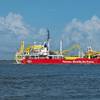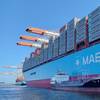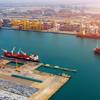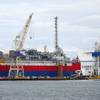In response to a possible increased flow of migrant activity from Haiti, the Dominican Republic and Cuba toward South Florida, the Coast Guard is increasing its patrols and surveillance of the Windward Pass, Old Bahama Channel and the Straits of Florida.
Coast Guard cutters, boats and aircraft are increasing their already significant presence in these areas for the direct purpose of interdicting migrants attempting to enter the U.S. illegally. These patrols save lives by removing migrants from unsafe vessels and deterring dangerous activity. They simultaneously cover the overlapping transit routes for smuggling of drugs and other contraband.
All migrants interdicted at sea remain in Coast Guard custody, receiving food, water and medical care if necessary, and will normally be repatriated back to their country of origin according to existing policies.
In the event of migrant smuggling interdictions, the Coast Guard will continue to work closely with other U.S. agencies including the U.S. Attorney's office to investigate and identify those involved in smuggling and hold them accountable for their dangerous and criminal actions. Conspiring to bring migrants into the country illegally is a violation of Title 8, United States Code, Section 1324(a)(1)(A)(v)(I) and carries a maximum penalty of ten years of imprisonment.
The U.S. actively discourages illegal migration as a matter of national security and for reasons of maritime safety. Migrant voyages are inherently dangerous and regularly result in injuries and deaths during voyage attempts on both homemade vessels and boats used by migrant smugglers.
Since Jan. 2000, at least 157 migrants are believed to have lost their lives in the Seventh District's area of responsibility. Last May, 13 Haitian migrants lost their lives when their 35-foot sailboat capsized throwing an estimated 86 migrants into the dark waters off Great Inagua, Bahamas. The Coast Guard was able to rescue 73 Haitian migrants. The actual number of deaths is believed to be much higher, but is unknown due to the large number of unreported voyages that never make it to their destination.
Coast Guard cutters and aircraft not only patrol our ports and waterways in the U.S., but also the entire Caribbean Basin and the common transit routes used by those who try to violate U.S. laws. This includes an area of 1.8 million square miles. The concern for South Florida is the approximately 250 miles of coastline that serve as the targeted destination for migrants.
"While we do the best we can to patrol the approaches to the U.S. we also need help from the commercial and recreational mariners who sail these same routes," said Capt. James Stark, chief of operations for the Seventh Coast Guard District. "It is a vast ocean that we are responsible for, and we ask anyone who sees any suspicious vessels or activity to report them to us."
Featured videos

Inmarsat Enhances Service to Drive Digitalization

Tracking Foreign Vessels Working in the U.S. Jones Act Market

Inside the Electrified Truckable Tug
Subscribe for
Maritime Reporter E-News
Maritime Reporter E-News is the maritime industry's largest circulation and most authoritative ENews Service, delivered to your Email five times per week









